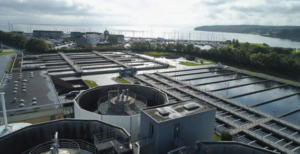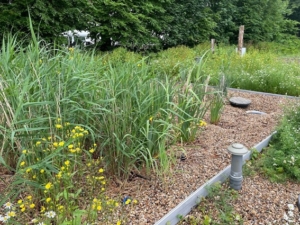Nature-based solutions for treating wastewater.
8 out of 10 liters of wastewater are returned to nature without proper treatment
Our daily life activities affect the environment, including the aquatic environment. Wastewater discharge is one of the most common problems. According to current estimates, 80% of the world’s wastewater is not treated and returns to nature, causing problems for humans and the environment.
Although there are different technologies available for treating wastewater, their implementation is one of the main challenges worldwide. The water treatment can be carried out employing centralized (e.g. in cities) or decentralized (e.g. in rural areas) solutions, using different technologies:
- Conventional treatment involves a combination of several processes, depending on the water quality. Conventional treatment is carried out in complex infrastructure and involves different steps, technologies, and equipment. It is often expensive and energy-demanding.

Fig. 1. Photo of a conventional wastewater treatment plant. Aarhus, Denmark
- Nature-based solutions (NBS) are engineered technologies that mimic nature to treat wastewater. These systems use a combination of microorganisms and plants that can tolerate and clean the pollutants in the wastewater, sometimes associated with a filter media. NBS are being developed and innovated to clean different types of water at different scales (e.g. rural and cities). Similarly to conventional systems, the type of processes depend on the water quality. In contrast to conventional systems, NBS are less energy-demanding but require larger surface areas for implementation.
 Fig. 2. Photo of an NBS, a treatment wetland, in Hammel, Denmark.
Fig. 2. Photo of an NBS, a treatment wetland, in Hammel, Denmark.


